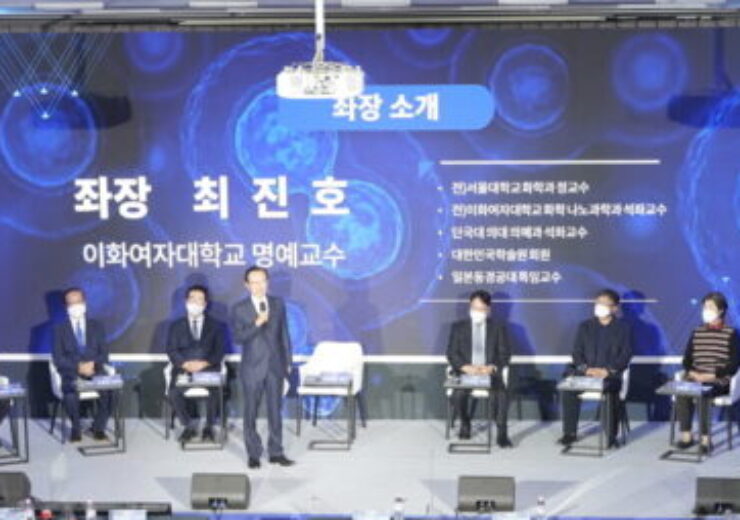The South Korean biotech firm claimed that the anticancer therapy candidate could complete chemotherapy with two doses in as less as eight days

Hyundai Bioscience unveils clinical trial design of Polytaxel. (Credit: PRNewswire/Hyundai Bioscience)
Hyundai Bioscience revealed plans to begin a global phase 1 trial of Polytaxel, an anticancer drug candidate, in pancreatic cancer patients in Australia.
In this connection, the South Korean firm has entered into a collaboration with an undisclosed Australian cancer hospital.
Hyundai Bioscience claimed that the anticancer therapy candidate could complete chemotherapy with two doses in as short as eight days. The potential chemotherapy is said to be a patient-centered treatment designed to control toxicity of anticancer drug.
Furthermore, Polytaxel is anticipated to help cancer patients get outpatient treatments without side effects and live normally at home and at work, said the South Korean biotech company.
Polytaxel was developed as a ‘pain-free’ anticancer drug based on an inorganic polymer nanohybrid drug delivery platform technology. Its active pharmaceutical ingredient is docetaxel, which is considered to be among the key chemotherapy drugs.
Hyundai Bioscience intends to file a clinical plan to the Australian Human Research Ethics Commission (HREC) once the clinical design is confirmed with a domestic clinical trial institution.
The company unveiled the clinical trial design of Polytaxel along with NOAEL therapy, which is a cancer therapy that could be administered without recovery break periods.
Hyundai Bioscience bio division president Park Kwang-Sik said: “The clinical design of Polytaxel has a very unique dosing method compared to the existing standard treatment method of docetaxel.
“Based on the very low toxicity of Polytaxel, a completely new standard treatment to enable pain-free anticancer treatment has emerged.”
Hyundai Bioscience said that the clinical trial will see the administration of Polytaxel by an interval of seven days to two separate patient arms, two times for one cohort, and three times for the other group.
For the two-dose arm, it will take eight days to full administration, and 15 days for the three-dose arm, said the South Korean pharma company.
Hyundai Bioscience stated that existing chemotherapy with docetaxel normally takes three to six months because a three-week recovery period is necessary between doses.
Hyundai Bioscience R&D head Jin Geun-Woo said: “We have conducted dozens of animal testing with the goal of applying the same dosing interval to animals and humans, and we have finally found the appropriate dosing interval to satisfy it.
“Polytaxel is a safe drug that is effective even if administered below the non-toxic level, which enables the same dosing interval to be applied for both humans and animals.”
